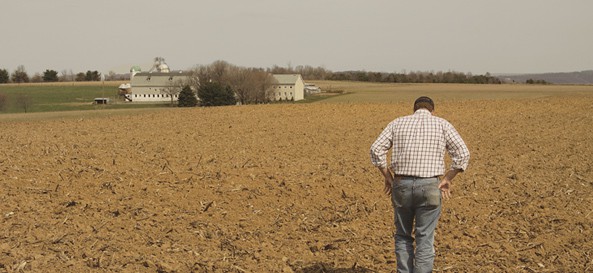In today’s society, farmers markets are rapidly gaining popularity. It’s a ritual for many people—go to the local market and buy as much as possible from the farmers that grow and produce the food. People enjoy purchasing produce from the farmers down the road, who grew them—knowing their names and seeing their smiles.
However, in some industries like coffee, chocolate and tea, the raw material can only be grow outside the U.S., making it impossible for many consumers to meet the farmer that grew the product. A few of the companies in these industries practice something called direct trade to make the closest possible connection from the farmer to the consumer.
Although it may sound similar, direct trade is not the same as fair trade. Fair trade is a certification process through an organization like Fair Trade USA. According to their website, fair trade is, “A certification that allows shoppers to quickly identify products that were produced in an ethical manner.” However, direct trade is when a manufacturer buys the raw product directly from the farmers that produced it.
One company in the US that practices direct trade is Askinosie Chocolate, a bean-to-bar artisan chocolate maker in Southwest Missouri. The company pays more than fair trade prices for their cacao beans, and founder Shawn Askinosie visits each farm every year to profit share and work with the community.
“I believe dealing with farmers in this way is the right thing to do because for centuries big businesses have profited on the backs of people in poverty so that we can enjoy a latte or a chocolate bar,” Askinosie said.
There are only two ingredients in this award-winning chocolate: Organic sugar and cacao beans. Therefore, the cacao beans from the farmers greatly impact the flavor of the finished product. Askinosie recognizes the farmers and their hard work by featuring a photo of the lead farmer in the packaging of each chocolate bar.
“When I sell a chocolate bar to somebody, they can look at the front, and they can see a picture of a farmer. This is a real person with a real story,” Askinosie said.
Askinosie recently returned from an origin trip to Tenende, Tanzania, where he visited the UWATE farmer group led by Mama Kyeja. While he was there, he profit-shared with the group, tested the bean crop for next season, brought financial statements about last year’s crop translated to Swahili and shared the finished chocolate for the farmers to taste.
“Everything I do emits from my faith,” Askinosie said. “I’m not perfect and our model is in no way perfect, but we do our best each day to treat people with respect and dignity.”
Every direct trade company is a little bit different. There are no set regulations or certifications in place. However, there are some common threads that make a company a direct trade company.
1. Higher Prices for the Product.
The first common denominator is that direct trade, generally speaking, pays the farmer’s more than Fair Trade offers. With the coffee industry, direct trade roasters often pay 20% to 30% higher than the current commerce market value, or C-Market value, according to the Direct Trade Coffee Club. Fair trade, however, promises a minimum price that does not often fluctuate when the commerce rate is inflated.
2. Strong Relationships Between Company and Farmer
Secondly, direct trade establishes relationships with the farmers, which often leads to improved farming techniques and a more quality product. As Askinosie mentioned, a relationship with the farmers aids in quality control. A manufacturer can help the farmer’s improve their farming techniques and can establish an ongoing dialogue about how to improve the product. Direct trade producers often have higher standards the farmers must meet to be accepted. This added competition paired with a larger price tag for the product gives the farmers strong motivation for excellence.
3. Avoids Extra Fees by Working Directly with the Farmer
Lastly, direct trade cuts out the middleman and certification fees, so the farmers make the most from their profit. Lawrence Solomon argues in the Financial Post that an unfortunate side of fair trade is the high certification fees that hurt the farmers the organization seeks to protect. That is one reason companies like Askinosie Chocolate choose to not be fair trade certified although they are paying more than fair trade requires. With no additional fees, the farmers can enjoy their profit in full.
“Fair trade has done many wonderful things to improve farming conditions around the world, but now they have given consumers and false sense of social goodness because it is not enough,” Askinosie said.
When all is said and done, direct trade is all about the farmer. Like local farmer’s markets, coffee roasters, chocolate factories and tea companies are trying to connect consumers to the story of how the product is sourced and produced—to give customers the opportunity to learn about people on the other side of the world growing coffee beans, tea leaves or cocoa beans.
Askinosie hopes that the direct trade model will inspire and convince many others that it is possible “to make a profit and do the right thing at the same time.”























